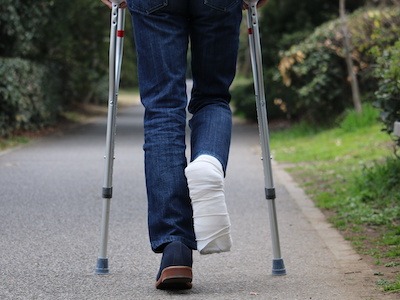It can happen when you least expect it. An injury results in the inability to work for a given period of time. This can result in questions about the difference between short-term vs. long-term disability to potentially be awarded disability benefits.
It is helpful to know that the Social Security Administration (SSA) does not recognize or award benefits for short-term disability. But, this does not mean you don’t have other options for income.
Find out more about your options by continuing to read the following information. Or, for immediate assistance understanding your qualifications for disability benefits, complete this form. We know this can be a difficult time, which is why we are available to help you during this process.
The SSA Definition of Disability
The Social Security Administration defines disability as a medically-proven physical or mental impairment that is expected to result in death or that has lasted or is expected to last for a continuous period of at least 12 months.
Your impairment must limit your ability to perform any level of work and be considered severe. The SSA requires that you also meet their requirements for work credits, which depends on your age.
Generally, you are required to have obtained 40 work credits to be eligible, with half of those being gained in the last 10 years.
Through this understanding, we can see that the SSA does not recognize or award benefits for any short-term disability. However, depending on where you live, you may have other available options for income.
States with Short-Term Disability
The Federal government and Social Security Administration do not mandate or recognize short-term disability benefits. However, there are a handful of states that require employers to provide coverage for short-term disabilities.
The following is a list of U.S. states with their corresponding programs. However, it is essential to note that there are requirements and guidelines in order for employees to be eligible to receive these benefits.
- California: Short-term disability insurance (SDI) program that provides up to a year of benefits.
- Hawaii: Short-term disabled individuals are eligible for 26 weeks of temporary disability insurance (TDI).
- New Jersey: Individuals are eligible for a maximum of 26 weeks of TDI.
- New York: Employees in this state are protected by its disability benefits (DB) law which allows a maximum of 26 weeks of benefits.
- Rhode Island: This state notes strict requirements for eligibility for its temporary disability insurance, which provides up to 30 weeks of disability benefits.
If you are not in one of these states, be sure to check with your employer to see if your company offers employees a short-term disability plan. Although it is not required by law, many companies offer a form of short-term disability benefit plan, either self-funded or through insurance.
Work With Disability Apply for Long-Term Disability
It is important to note that if you are disabled and your doctor believes the disability will last for at least one year, it is best to reach out to a Social Security Disability advocate to begin the disability application process. This will help you start the journey toward receiving disability benefits.
At Disability Apply, we are experienced in handling disability benefits claims and are ready to extend you a helping hand today. Complete this form!

